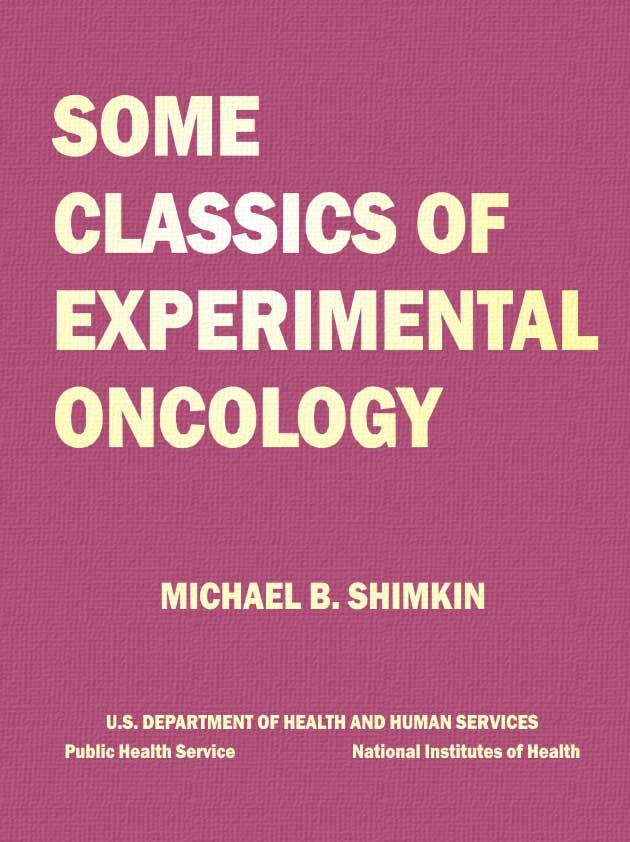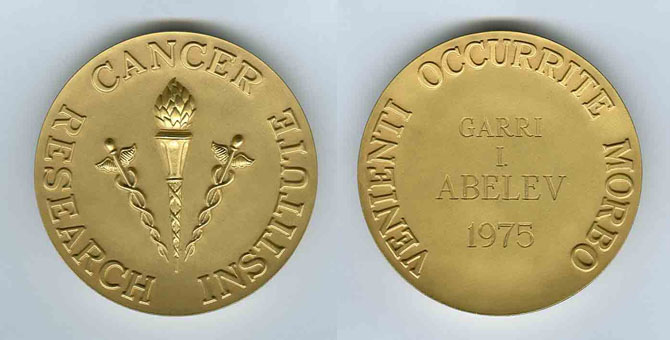
FIRST AWARDS
IN
CANCER IMMUNOLOGY
PROGRAM
Welcome
Julian H. Robertson, Jr.
President, Cancer Research Institute
Introductory Remarks
Oliver R. Grace
Chairman of the Board, Cancer Research Institute
Speaker
Laurance S. Rockefeller
PRESENTATION OF AWARDS
Closing Remarks
Lewis Thomas, M.D.
President, Memorial Sloan-Kettering Cancer Center
Dr. Peter A. Gorer
(Posthumous Award)
Much of what is known about tumor immunology today could not have been discovered without the preceding extensive and detailed immunogenetic analysis of the mouse. We honor Peter A. Gorer for the penetrating insights and incisive logic that laid the foundation of tumor immunology.
Dr. Ludwik Gross
Chief, Cancer Research Unit
Veterans Administration Hospital
Bronx, New York
Mr. Edward J. Foley
Schering Corporation
Bloomfield, New Jersey
Dr. Richmond T. Prehn
Professor of Pathology University of Pensilvania
The modern era of tumor immunology is generally considered to have began with the first indisputable evidence that cancer cells have specific antigens which differentiate them from normal cells and so can elicit a cancer-destructive immune responce. We honor Ludwik Gross, Edward J. Foley and Richmond T. Prehn for the crucial experiments which established this.
Dr. Hans O. Sjogren
Department of Medical Microbiology
University of Lund
Lund, Sweden
The demonstrartion that tumor viruses can impart antigens to the surfaces of cells they render cancerous, and so render them immunologically foreign, is a corner stone of modern tumor immunology. We honor Hans O. Sjogren for his role in this discovery, and further for original demonsnrations of cellular immunity against tumors in tissue culture.
Dr. Garri I. Abelev
N.F. Gamaleya Institute of Epidemiology and Microbiology
USSR Academy of Medical Sciences
Moscow, USSR
The discovery that antigens that are normally evident only in the embryo may reappear in cancer was a landmark of tumor immunology. We honor Garri I. Abelev for the findings which first established this and which have already been succesfully applied to the diagnosis of cancer by immunological methods.
Dr. Robert J. Huebner
Chief, Viral Carcinogenesis Branch
National Cancer Institute
Bethesda, Md.
The recognition that viral antigens may persist in animal cancers from which the causative virus itself can no longer be recovered has provided essential approaches in the quest for evidence that viruses may cause cancer in man. We honor Robert J. Huebner for his discovery of the T-antigens, which have been of outstanding value in research on the assotiation of viruses with cancer.
Dr. Donald L. Morton
Professor of Surgery
School of Medicine
University of California, Los Angeles
Los Angeles, Cal.
The possibility that effective immunity against virus-induced tumors might fail to develop if infection occurs early in life and so gives rise to immunological tolerance, has been a central issue in tumor immunology. We honor Donald L. Morton for having proved that this is true of the mammary tumor virus of mice, and also for outstanding clinical observations which relate the immune capacity of cancer patients to their prognosis.
Dr. Edmund Klein
Chief, Department of Dermatology
Roswell Park Memorial Institute
Buffalo, N.Y.
The ultimate goal of cancer research is the prevention and treatment of human cancer. We honor Edmund Klein for having devised the first reproducibly effective immunological therapy for a form of human cancer.
Dr. Robert A. Good
President and Director
Sloan-Kettering Institute of Cancer Research
New York, N.Y.
In the light of knowledge that tumors are capable of eliciting immune responses, the immune capabilities of the host are seen to be of paramount importance. We honor Robert A. Good for pioneering research on the immune deficiencies of cancer patients and the increased incidence of certain tumors in immunologically deficient patients.
Drs. Werner and Gertrud Henle
Children's Hospital
Philadelfia, Pa.
The recognition that viruses of the well-known herpes family can cause certain tumors in animals is one of the foremost achievements of cancer research. We honor Gertrude and Werner Henle for immunological research which elucidated the relation of the Epstein-Barr herpes virus to Burkitt's lymphoma, and to the self-limiting proliferative disease infectious mononucleosis.
Drs. George and Eva Klein
Department of Tumor Biology
Karolinska Institutet
Stockholm, Sweden
The Department of Tumor Biology at the Karolinska Institutet has become a world center for the study of all aspects of cancer immunology, both in animals and in man. We honor George and Eva Klein, who founded this famous school, whose personal contributions range from early discoveries of tumor-specific antigens in the mouse to the most detailed comprehensive immunological analisys of a human cancer, Burkitt's lymphoma.
Dr. Edward A. Boyse
Sloan-Kettering Institute for Cancer Research
New York, N.Y.
Dr. Lloyd J. Old
Vice-President and Associate Director
Sloan-Kettering Institute for Cancer Research
New York, N.Y.
It is widely believed that the cell surface holds the key to an understanding of how cells normally associate and of how this controls break down in cancer. We honor Edward A. Boyse and Lloyd J. Old for having founded a School of immunogenetics which has been the source of most modern knowledge concerning the antigenic composition of normal and malignant cells, and the way in which this is governed by cellular and viral genes.
Mrs. Helen C. Nauts
(William B. Coley Memorial Award)
Executive Director
Cancer Research Institute, Ink.
New York, N.Y.
Only recently, as the facts of tumor immunology became clearer, has it been truly possible to appreciate the implications of William B. Coley's work, which began as early as 1891. His daughter, Helen C. Nauts, often standing alone, kept alive the concept of natural resistance to cancer by founding the Cancer Research Institute and amassing an incomparable literature on defences against cancer.
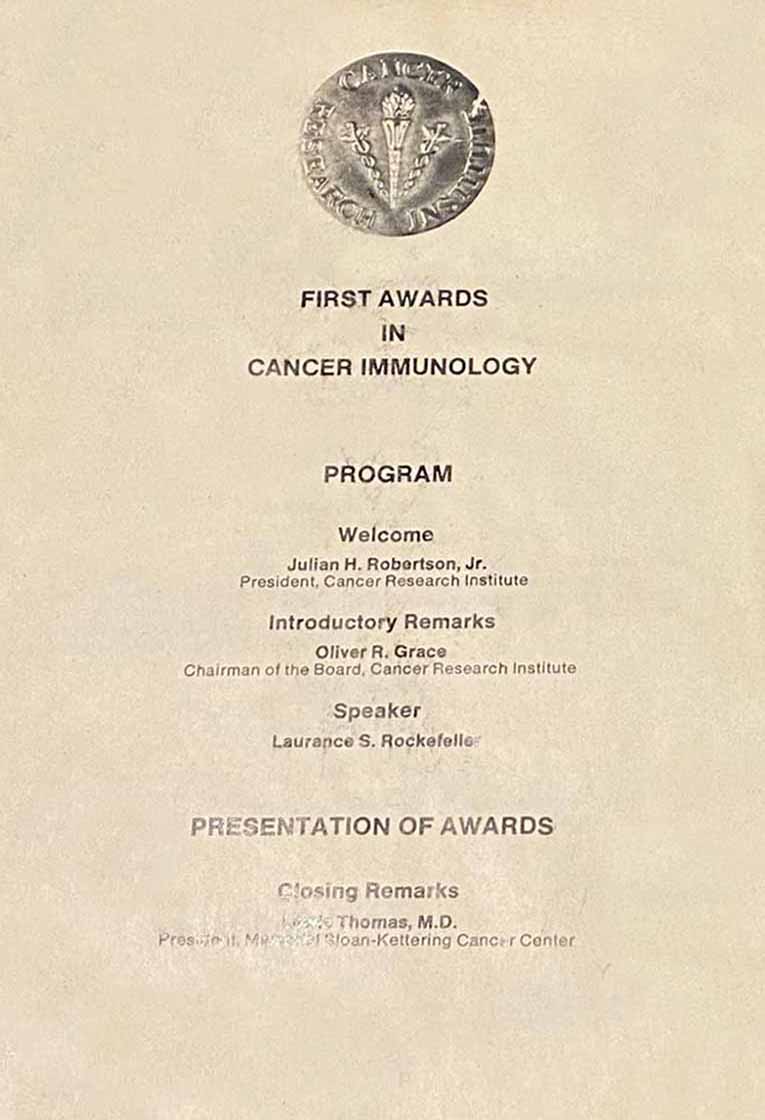
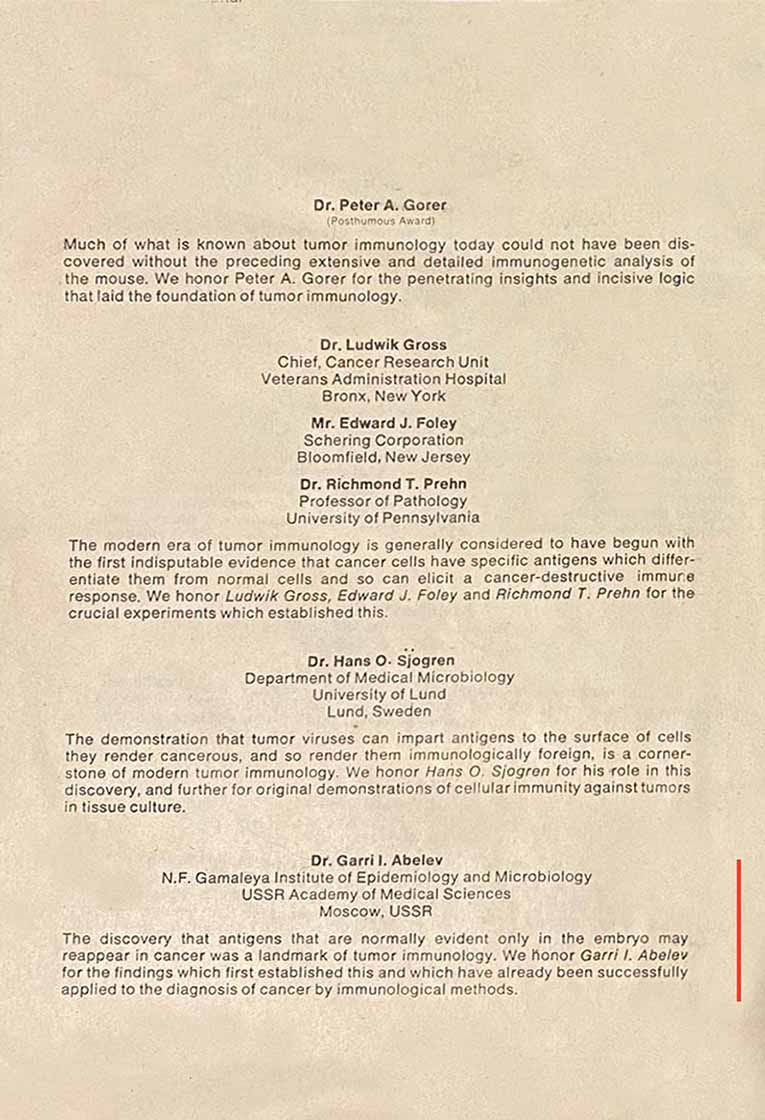
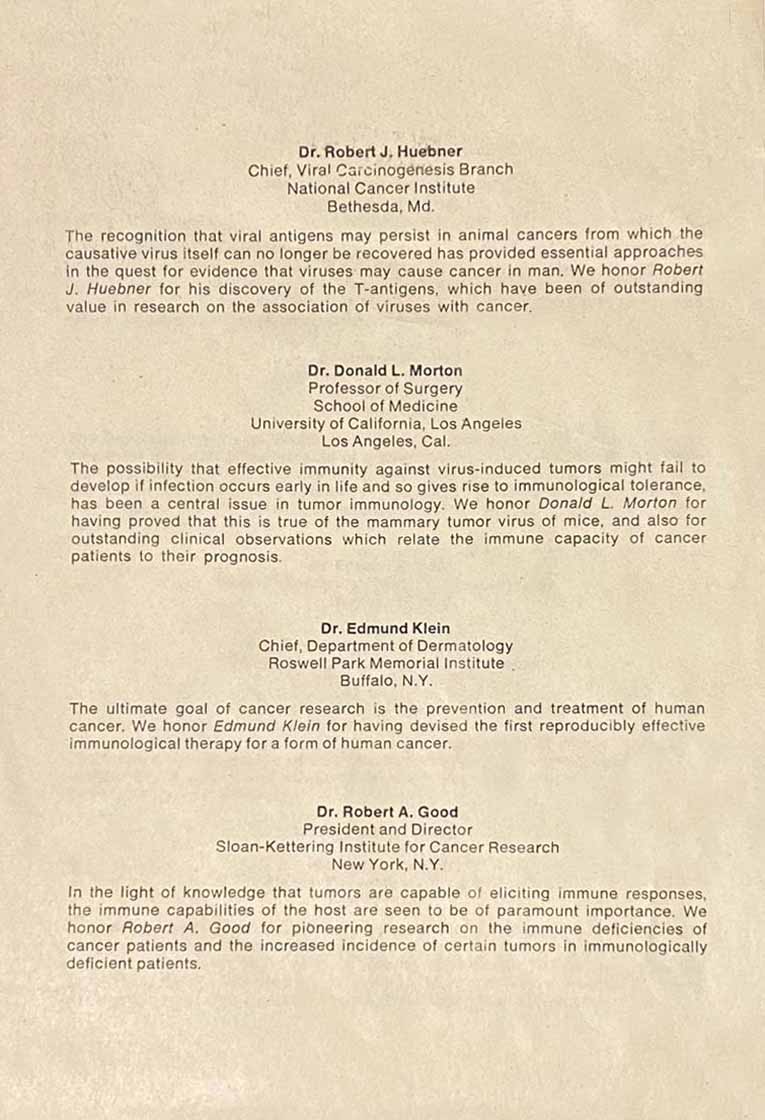
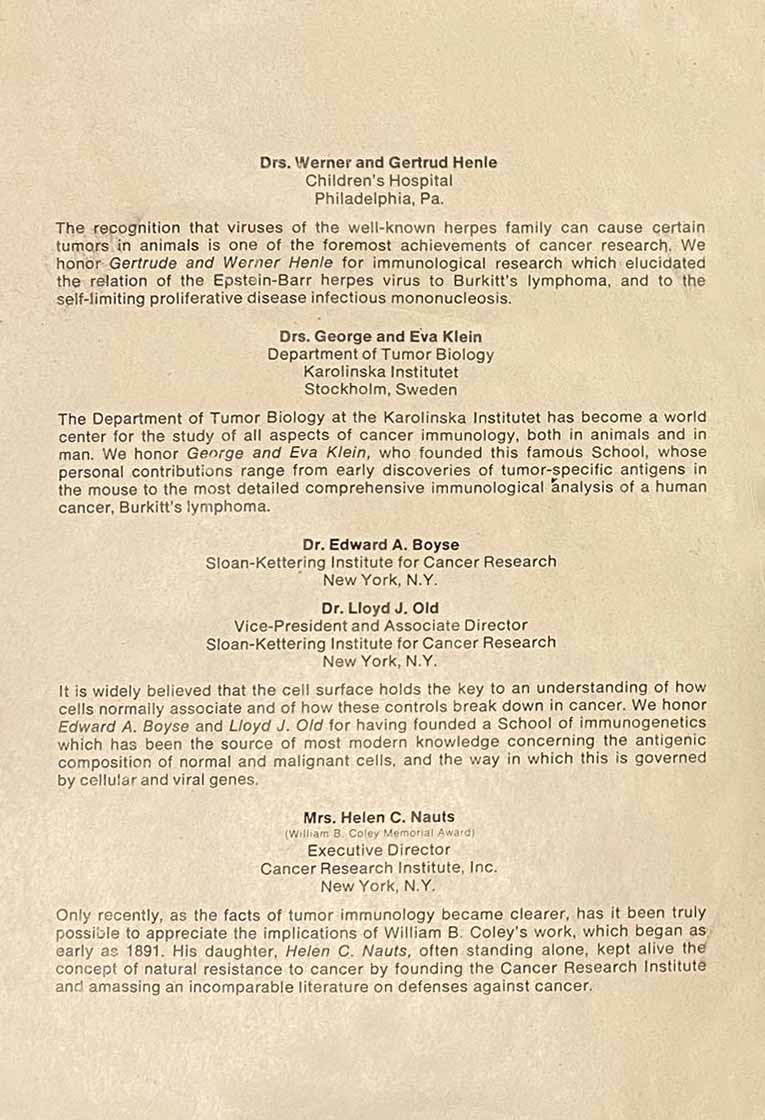
Dr. Garri I. Abelev
N.F. Gamaleya Institute of Epidemiology and Microbiology
USSR Academy of Medical Sciences
Moscow, USSR
The discovery that antigens that are normally evident only in the embryo may
reappear in cancer was a landmark of tumor immunology. We honor Garri I. Abelev
for the findings which first established this and which have already been succesfully
applied to the diagnosis of cancer by immunological methods.
